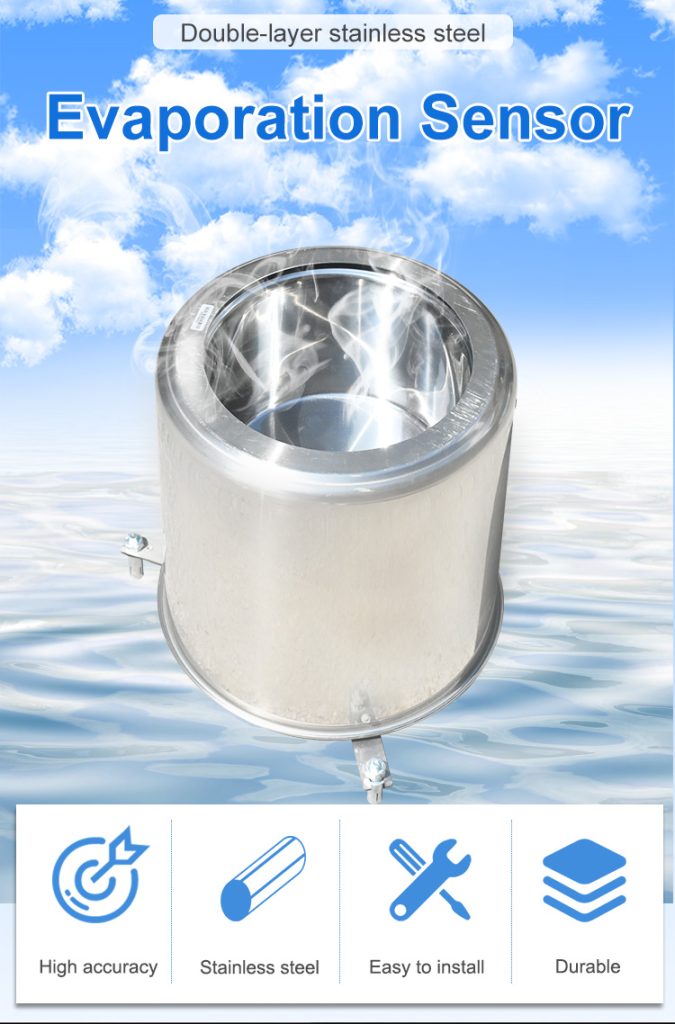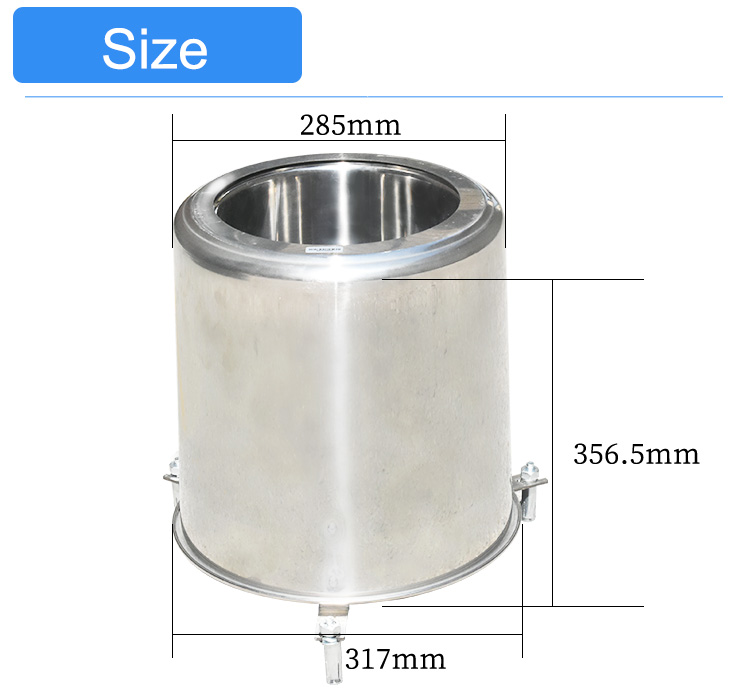What is evaporation
Meteorologically measured evaporation is the daily evaporation on the water surface (including when it freezes), which refers to the depth of the water layer lost due to evaporation of water in an evaporator of a certain caliber in a day. The unit is mm and is accurate to 0.1mm. It is a very important meteorological monitoring element in the hydrometeorological monitoring system. It is often used to monitor the evaporation in the environment by using an evaporation sensor.
Introduction of evaporation sensor
The diameter of the evaporation sensor is a metal cylinder with a diameter of 29.8cm and a height of 30cm. The edge of the mouth is inlaid with a copper ring with a square inside and an inclined blade. It adopts the pressure measurement monitoring principle, and it measures the liquid in the evaporation dish through the weighing principle. The weight of the liquid is changed, and then the height of the liquid level is calculated, so as to obtain the evaporation volume, which is not affected by the freezing of the liquid; the double-layer stainless steel cylinder is used on the outside to prevent the evaporation error caused by direct sunlight and make the measurement accuracy more accurate.
The evaporation transmitter uses a digital sensor, which effectively guarantees the service life of the sensor, the bottom-out wiring method is used to reduce open wires and avoid line failure, the whole is made of stainless steel, which is corrosion-resistant, and can be observed normally under the wind, wave and rain conditions. Strong adaptability, anti-electromagnetic interference, even if the power is turned on after a power failure, the output data is still correct.
The evaporation transmitter adopts standard Modbus-RTU 485 signal output. In hydrometeorological monitoring, the evaporation sensor sends the calculated data to the monitoring host through the 485 bus, and then the host uses GPRS/4G communication to upload the data to the hydrometeorological monitoring management center to realize remote management, Real-time data viewing, data analysis, abnormal alarm, and other functions.

Evaporation sensor applications
In actual use, the evapotranspiration sensor can be used in conjunction with automatic water adding devices, data collection, and transmission devices, etc. It is also often used as an important part of monitoring equipment such as automatic rainfall stations, automatic weather stations, environmental monitoring stations, etc., and is used in meteorological observations, plants Cultivation, seed cultivation, agriculture and forestry, geological survey, scientific research, and other fields, to realize the automatic monitoring and remote transmission of evaporation and rainfall process.

In the hydrometeorological monitoring system, the evaporation sensor can be used to monitor and estimate the surface evaporation of a large water body in a certain area. In arid or semi-arid areas, due to scarce precipitation, the evaporation rate may greatly exceed the water supply capacity, while in humid areas, the total evaporation of the basin is close to or equal to the water surface evaporation in the area; the land surface evaporation in semi-humid areas is between two situations In between, it is controlled by water supply conditions or possible evaporation. Through hydrometeorological monitoring, the relationship between rainfall and evaporation in a certain area is summarized.